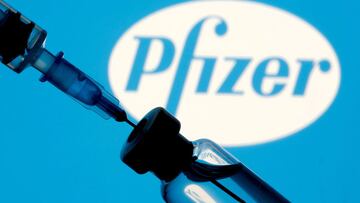Can you get a covid-19 booster shot in the US?
Pharmaceutical companies are requesting permission for another jab over winter as the Delta variant runs rampant.


The short answer is no, in the US it isn't currently possible to receive a third dose of a covid-19 vaccine. However, it is looking more and more likely that it will become a possibility come the fall.
Why are companies saying it should be extended?
Despite just over 50% of the US population vaccinated, there has been a worrying rise in cases driven by the Delta variant of covid-19. The new variant, first sequenced in India, is much more infectious than previous variants. It has forced some states to reimpose some restrictions and others to impose vaccine mandates on federal workers.
For older adults, their vaccines were distributed back in January and February, meaning there is a chance their vaccines have lost some of their efficacy. This could in turn lead to what are called 'breakthrough cases,' where people are reinfected with covid-19 but at a stage that could put their health seriously at risk. While vaccine efficacy remains high there is no problem; 97% of all covid-19 hospital cases in the US are for those who have been unvaccinated.
More vaccine news:
- How many variants of covid-19 are there and which are the most deadly?
- Who can force you to get a covid-19 vaccine?
- Why hasn't the FDA officially approved the coronavirus vaccines?
- How effective are masks against the Delta variant?
Do booster vaccines work?
The few trials to have tested extra doses support the view that they are useful. Third doses of vaccines developed by Moderna, Pfizer–BioNTech and Oxford–AstraZeneca showed an increase in levels of infection-blocking antibodies. Pfizer posted the new information as part of its quarterly performance review where it claimed a third dose could "strongly" boost protection against the new wave. The findings have not currently undergone a scientific review.
A United Kingdom trial will test different combinations of boosters, using a different vaccine from the original inoculations. Preliminary studies of these ‘mix and match’ strategies suggest that they could lead to more robust immune responses. “It appears that the Pfizer vaccine boosted antibody responses remarkably in one-dose AstraZeneca vaccinees. This is all around wonderful news,” says Zhou Xing, an immunologist at McMaster University in Hamilton, Canada.
What does the WHO say about boosters?
Currently, the WHO is not recommending booster vaccines. The organisation says the vaccines would be better served being given to the developing world where the vaccine rollout has been slow as a result of the buying power of the world's major economies.
It’s appalling that rich countries, having bought and hoarded their way to the front of the COVID vaccine queue, are now talking about autumn boosters rather than going all out to get doses to the places that really need them. https://t.co/FZoXAmcwrd
— Adam Kucharski (@AdamJKucharski) August 5, 2021
Related stories
"I understand the concern of all governments to protect their people from the Delta variant. But we cannot accept countries that have already used most of the global supply of vaccines using even more of it," WHO head Adhanom Ghebreyesus Tedros added. Only 1.1% of the global south have received a single dose, compared to over 70% of the US.
The first country to introduce booster shots was Israel but other countries have followed suit. Germany is offering boosters to older adults in September and the United Kingdom will do the same.
First Israel, now Germany...#COVID19 booster vaccines (3rd doses) for elderly & those at risk of severe infection.
— Isaac Bogoch (@BogochIsaac) August 2, 2021
This has to be balanced with the very low vaccine access in most low income countries, many currently being pummelled by Delta variant. https://t.co/DIc7bPht4Z

